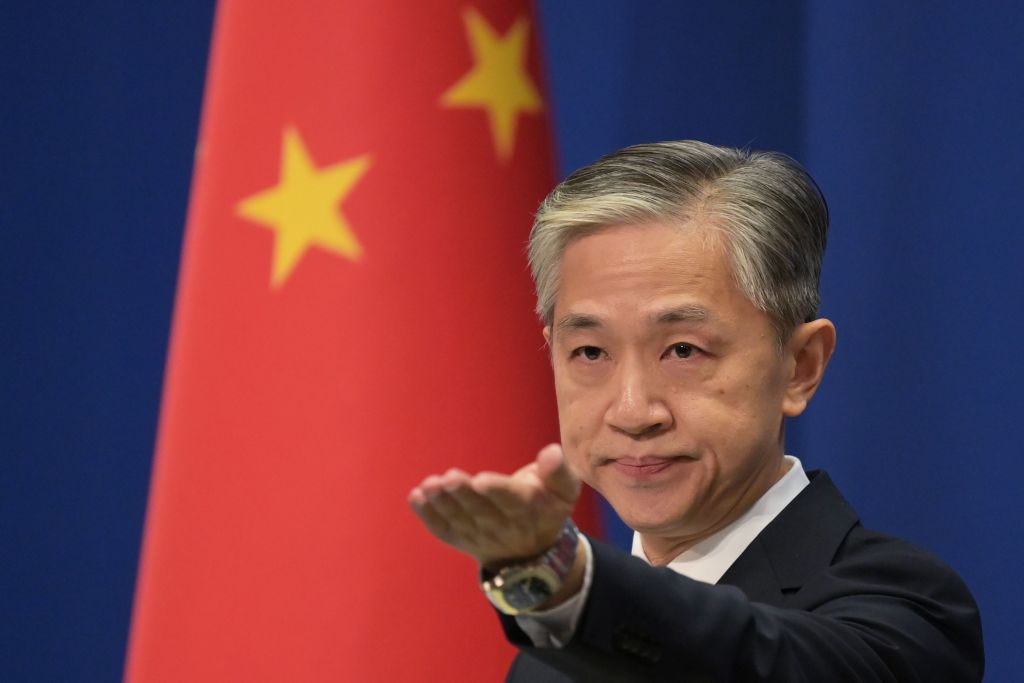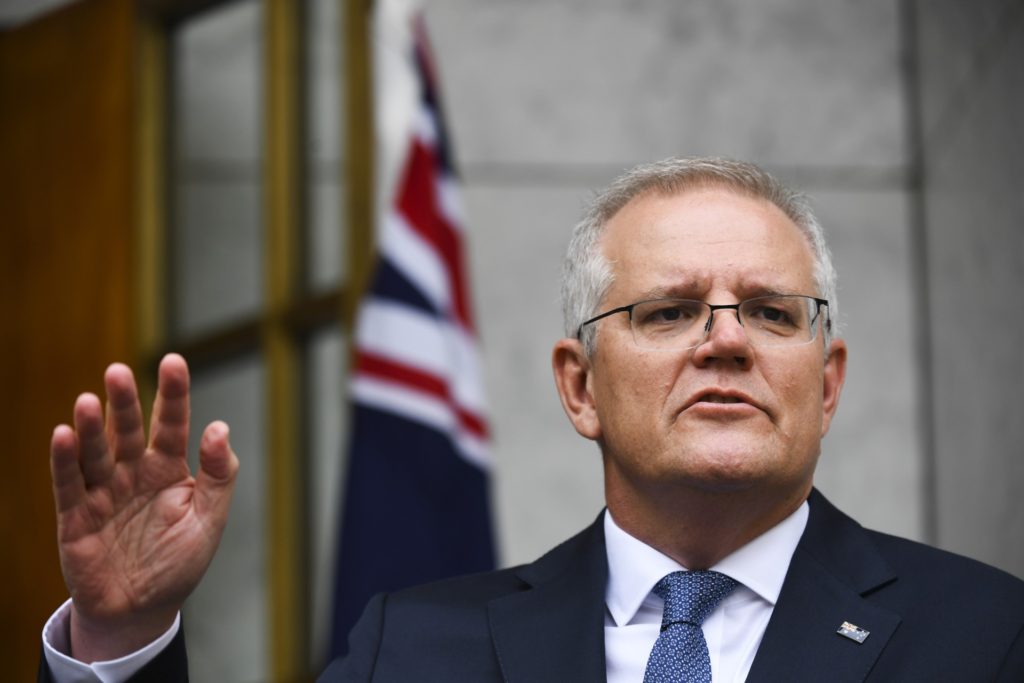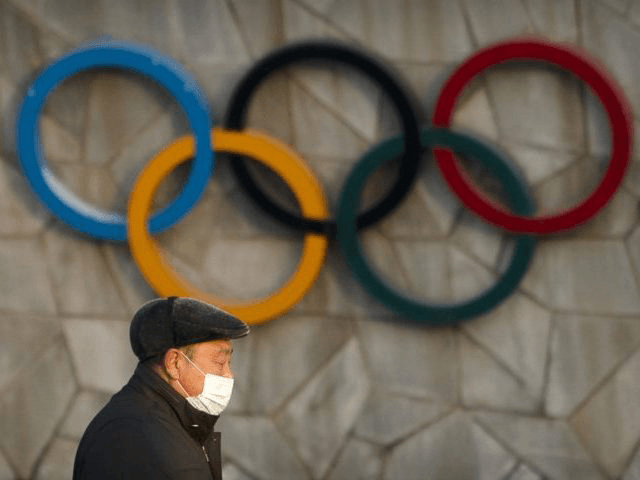China’s Ministry of Foreign Affairs on Wednesday dismissed reports that Australia plans to stage a “diplomatic boycott” of the 2022 Winter Olympics in Beijing in February as “political posturing” by revealing “China hasn’t invited any Australian government official” to attend the Games and adding “no one would care whether they come or not.”
“China hasn’t invited any Australian government official to attend the Beijing Winter Olympics. In fact, no one would care whether they come or not, and Australian politicians’ political stunt for selfish gains has no impact whatsoever on the Olympics to be successfully held by Beijing,” Chinese Foreign Ministry Spokesman Wang Wenbin told Xinhua, China’s official state-run press agency, at a regular press briefing December 8.

Chinese Foreign Ministry spokesman Wang Wenbin takes a question at the Foreign Ministry briefing in Beijing on November 9, 2020. (Photo by GREG BAKER/AFP via Getty Images)
Australian Prime Minister Scott Morrison announced on December 8, “Australian government officials would not be going to China for those Games.” He referred to the 2022 Winter Olympics, which are scheduled to take place in Beijing from February 4 through February 20.

Australian Prime Minister Scott Morrison gestures during a press conference at Parliament House in Canberra, Australia, Monday, Nov. 22, 2021. (Lukas Coch/AAP Image via AP)
Canberra’s revelation came one day after the U.S. government announced a so-called “diplomatic boycott” of the Games citing the Chinese Communist Party (CCP)’s human rights violations, including the recent genocide of ethnic Uyghurs — a largely Turkic-speaking, Sunni Muslim group — in China’s westernmost region of Xinjiang. Australia’s government on Wednesday also cited the CCP’s human rights violations as one of several reasons it chose to “boycott” the 2022 Winter Olympics.
Diplomats and political figures do not traditionally compete in the Olympics Games, so their absence does not in any way disrupt the sports competitions – essentially making it impossible for them to “boycott” the event.
Chinese politician Liu Xiaoming — who served as Beijing’s longest-serving ambassador to the United Kingdom (U.K.) from 2010 to 2021 — responded to Washington’s declaration of an Olympic boycott on Monday by revealing that U.S. government officials, like those of Australia, were not invited to the 2022 Winter Olympics.
“The Winter Olympic Games is not a stage for political posturing and manipulation,” the newly retired ambassador wrote in a Twitter statement posted December 6.
“US politicians keep hyping a ‘diplomatic boycott’ without even being invited to the Games. This wishful thinking and pure grandstanding is aimed at political manipulation,” Liu wrote.
The governments of Canada and the U.K. followed Australia on December 8 in announcing their own “diplomatic boycotts” of the 2022 Winter Olympics in Beijing.
Australia, the U.K., and the U.S. formed a new security pact in September called AUKUS. The military bloc seeks to deter China’s growing presence and influence in the Indo-Pacific region. Trade and political tensions between Canberra and Beijing have increased in recent months. Prime Minister Morrison on Wednesday cited these issues as some of the reasons behind Australia’s so-called “diplomatic boycott” of the 2022 Winter Olympics.
“We have been raising a number of issues that have not been received well in China,” Morrison told reporters December 8.
“There’s been a disagreement between us on those matters,” he acknowledged.
“We have always been open to meet with the Chinese government to talk about their concerns, whether it’s their concerns with our foreign interference legislation or other foreign investment rules where Australia takes a very strong stance standing up for Australia’s interests,” Morrison said.
“They [China] have been very critical of Australia in our efforts to ensure that we have a strong national defense force, particularly in relation, most recently, to our decision to acquire nuclear-powered submarines,” the head of state noted.

COMMENTS
Please let us know if you're having issues with commenting.